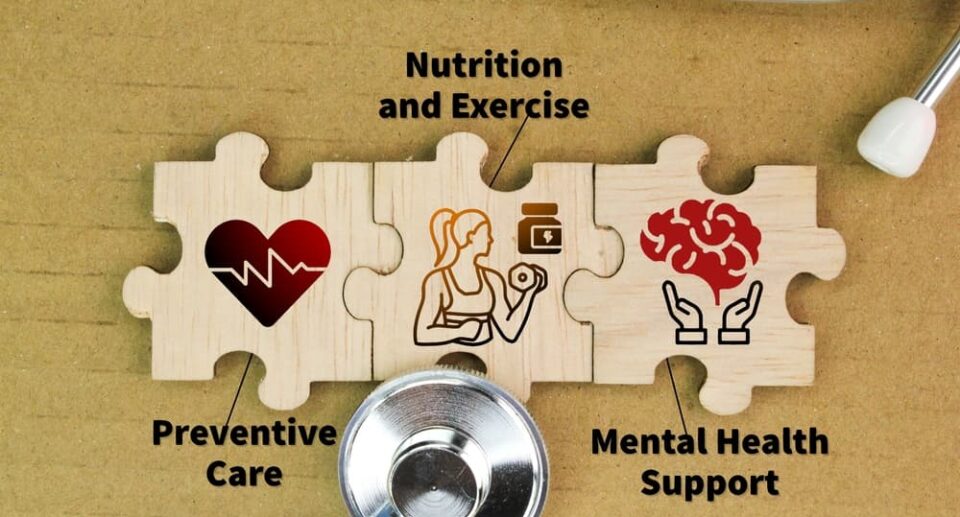How to start a daily mindfulness practice


How to start a daily mindfulness practice begins with just a few minutes of focused breathing and being fully present in the moment no special tools required. Life goes fast. Work deadlines, family responsibilities, and an incessant stream of notifications may make one tense. Stress can be hard to avoid over time and become a part of people’s lives. However, mindfulness is the perfect way to change a situation.
Daily mindfulness is not aimed at achieving perfection or becoming a monk. The purpose is to learn to take a break, breathe, and be a lot more present in your life. Research indicates that even if you use mindfulness for only a few minutes, it can still have benefits such as decreased tension and better attention. As a result, your emotional state will also improve.
Daily Mindfulness: A Simple Practice for a Healthier, Calmer Life
Practice Daily Mindfulness Through Movement and Exercise


An easy way to support your mindfulness practice and, ultimately, your well-being is by doing exercise. Physical activity not only reduces the stress in your body and brightens your mood; it also helps you be present, which is a necessary part of being mindful. Whether through yoga, walking, or doing a quick workout, daily physical activity can help one be mentally clear and create focus. Just a 20-minute moderate exercise can lower your stress levels and boost your ability to stay connected with yourself during the day.
According to Harvard Health Publishing, even brief sessions of mindfulness meditation can help reduce anxiety and improve mental clarity.
Mindful Living Can Reduce Inflammation and Strengthen Immunity


Practicing mindfulness can lessen the body’s inflammation, a major contributor to various dangerous diseases that attack people. You can maintain your immune system through daily mindfulness by reducing stress hormones like cortisol and relaxing simultaneously. If you persist in these patterns, you will be healthier and have fewer symptoms of stress-related illnesses over some time. You will also have a stronger sense of self.
Daily Mindfulness Supports Better Sleep Quality


Using mindfulness every day can lead to a significant increase in your sleep quality. Calming the mind, avoiding racing thoughts, and reducing anxiety are the ways by which mindfulness makes your body ready to get a good night’s sleep. The use of techniques like mindful breathing or body scans just before bedtime is a way for the CNS to communicate the need for relaxation, making it easier to fall and stay asleep at night. A good night’s sleep is the basis for good mental and physical health.
How Mindfulness Practice Reduces Anxiety and Depression


A daily mindfulness practice assists in the reduction of anxiety and depression by both promoting emotional well-being and generating present-moment consciousness. Mindfulness practice instructs people to observe their thoughts without prejudice; thus, they suffer less from rumination and overthinking. These are the main psychological reactions associated with anxiety and depression. The observations divulge that mindfulness practice consistently can normalize cortisol, a stress hormone, and enhance the release of serotonin, a neurotransmitter, hence a more balanced and resilient mood with time.
Improve Focus and Attention Span with Daily Mindfulness


Mindfulness works on training the brain to develop the attention span to the level of being focused on what is happening right now. Consistent practice not only brings up cognitive control but also decreases mental distractions. You can refer to a new study that proves that the improvement in attention, memory, and productivity can be established from as little as daily short sessions of mindfulness—thus making it simple quite naturally to stay with a task or work while discussing or dealing with household chores.
Daily Mindfulness Decreases Emotional Reactivity


Mindfulness is one of the strategies used to reduce emotional reactivity. Being mindful creates a distance between what evokes your emotions and your reaction. In the presence of stress or conflict, your reaction to it is not a reflex; you stop to check your feelings, and your response is better. The developed awareness of self brings the possibility of making better choices and solving emotional problems, thus making it possible to improve relationships and feel the most you want in everyday life.
Build Greater Resilience Through Mindful Living


Daily mindfulness can make us more resilient by boosting our capacity to deal with stress and recover from difficulties. It keeps you here and now rather than ruminating about your problems. As a result, the ongoing awareness of yourself can develop emotional power capable of dealing with calamities in a peaceful and balanced manner.
Make Daily Mindfulness a Simple Habit
There is no requirement for ample leisure time or expensive accessories to initiate mindfulness daily. You only need a desire to stop and focus on the moment.
Being mindful is an enduring practice that begins with tiny and conscious acts. The benefits grow over time—stress reduction, more transparency, and a stronger sense of inner tranquility.









